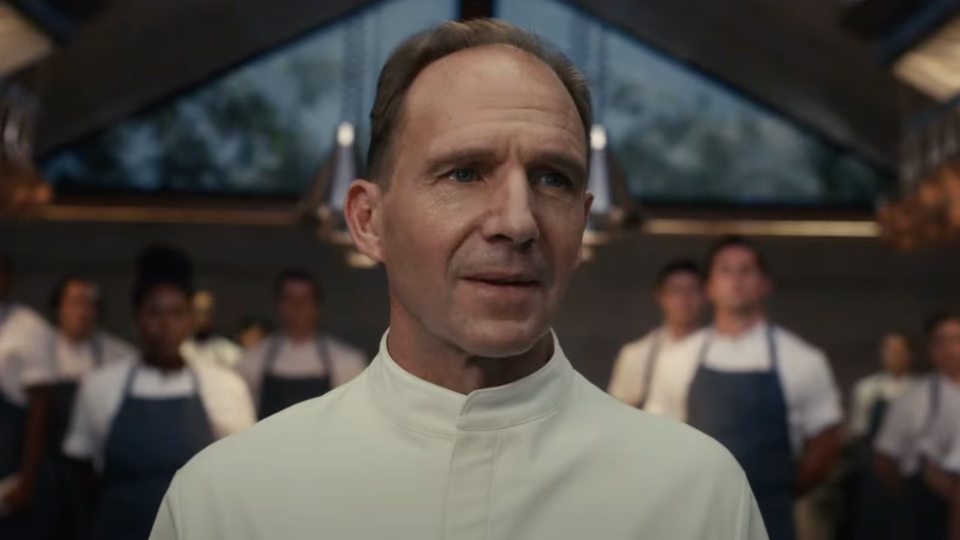The Menu

A young couple dine at Hawthorn, the restaurant of reclusive chef Julian Slowik. It sits on a private island, charges $1250 a head and serves twelve customers a night. But what begins as a traditional fine-dining experience grows more confrontational.
As Slowik, Ralph Fiennes channels James Lipton in a performance that straddles the comedic and sinister. Early in the meal, he announces the bread course will feature no bread. Bread, he says, “Has always been, the food of the common man. But you, my dear guests, are not the common man. And so tonight… you get no bread.” Instead, he serves the dipping sauces, saying, “In this spirit, please enjoy the unaccompanied accompaniments.”
As Slowik’s right hand, Hong Chau also proves memorable. She conveys a simmering menace masked by a thin veneer of politeness. When she drops said veneer for a moment to whisper to a petulant diner, “You will eat less than you desire and more than you deserve,” the delivery chills.
As a black satire The Menu shines. As Slowik’s aggression grows gruesome and violent, the customers’ reactions afford the film opportunity to satirize the patrons of such high-end restaurants. Nicholas Hoult plays a Slowik fanboy who proves oblivious to the growing danger, highlighted by Slowik having to cue him to run away. John Leguizamo channels Johnny Depp as a scandal-ridden former A-lister sliding into irrelevance who reacts with alarm but proves incapable of effecting change. A trio of frat-boy executives react with indignation and we relish their embarrassment. A food-critic and her assistant assume it’s an act. An aging married couple with more money than they can spend sits passive, bored and numb.
Had it remained a single-room satire, it would be great. But it wanders. There’s a side-plot involving Ana Taylor-Joy, who plays Holt’s unimpressed date. A scene where the restaurant staff chase the male diners across the island proffers some amusing moments involving Holt’s character, but proves extraneous. It exists only to facilitate a scene involving the female diners where Taylor-Joy tells us what we’ve already inferred. This leads to a showy confrontation between Taylor-Joy and Chau that proves a dead-end. These aren’t fatal flaws, but annoying distractions. As though the film felt it needed more action.
With a cast this strong, it needn’t have bothered. Taylor-Joy conveys everything we need to know about her backstory without exposition. Her eyes, tone, and body language speak volumes. The film’s strongest scenes see her opposite Fiennes, each demonstrating a master-class in showing versus telling. This culminates in a satisfying finale that delivers a surprising dose of pathos.